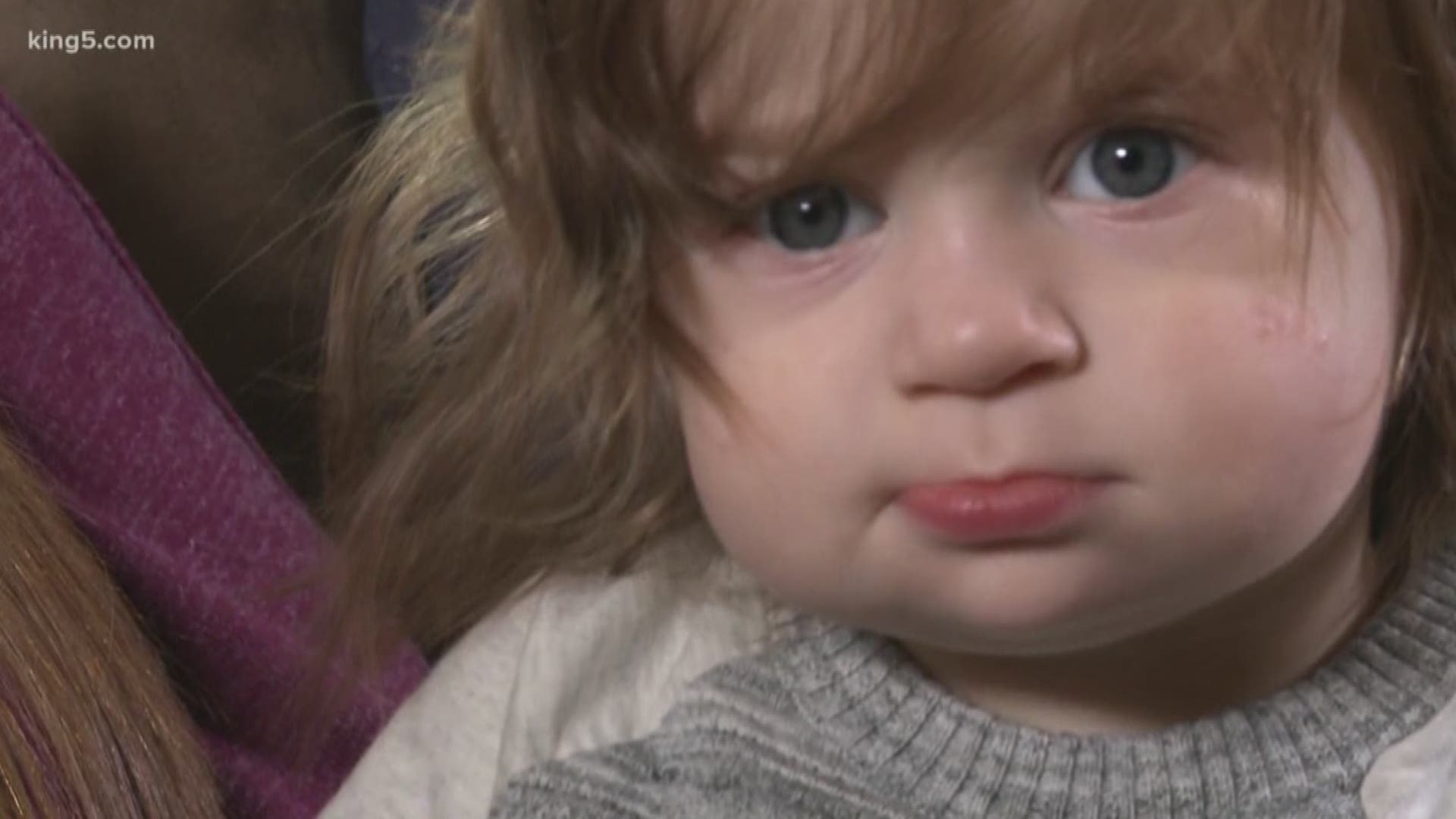SEATTLE — Heart transplants happen many times every day.
But a transplant on a three-month-old infant is still a miracle of science and generosity.
The cardiac care unit at Seattle Children’s is the Northwest’s most accomplished team for these delicate procedures.
That’s something the Sickles family of Toledo, Washington are grateful for.
Titus Sickles, who is now one-year-old, is obsessed with wiggling to “Baby Shark”, with his 3 older brothers.
Titus has faced challenges few overcome even before he was born.
“When I was pregnant with him we went in for the routine anatomy scan where they measure everything and then we figured we would find out if he was a girl or boy. And instead we ended up finding out that he was expected to be born with a half of a heart,” explained Titus’s mother, Rena Sickles.
Titus was born relatively strong. After a few adjustments the Sickles took their fourth boy home, but with great concern.
“They didn't come out at first and tell us he had heart failure. We just knew about the hypoplastic left heart,” says father Andy Sickles.
Titus had multiple issues with his heart and it became apparent he needed more intensive care. The Sickles and their newborn transferred to Seattle Children’s.
“He had severely diminished heart function. Both the left and right ventricles were squeezing very poorly and that made him a pretty bad candidate for the routine type of repair,” said Seattle Children’s cardiac surgeon, Dr. Lester Permut.
It became clear that Titus’s best chance at survival was a heart transplant.
“We all agree unanimously that we need to just list him for a transplant get him on the list as soon as possible,” explained his mother.
Heart transplants have become almost routine for adult patients. But it is much harder to find a donor heart for a newborn.
“The main issue in a baby like Titus was the size of the donor, because his heart was enlarged we can accept hearts from somewhat larger donors but there's clearly a limit on that. And of course, the number of child donors for hearts is much less than the number of adult donors for hearts,” said Dr. Permut.
“You almost get survivor's guilt even though it was our child, you really just feel awful that somebody had to lose their baby for yours to live,” said mother Rena. “People don't believe us that he's had a heart transplant. He he's like a normal kid he does everything a normal kid does.”
"The great thing about Seattle Children's that allows us to have such an outstanding heart team is because there is also an outstanding kidney team, and an outstanding liver team, and an outstanding ICU team, outstanding nurses and it really takes whole package to make each team work successfully,” said Dr. Permut
Titus will be on anti-rejection medication for the rest of his life and it’s the careful management of that medication that is key to his survival.
“I want him to live as normal of a life as possible. I don't want us to hold him back. I want him to get to be a normal little boy and grow old with his brothers,” said Rena.
This story is sponsored by Seattle Children's.

